I would like to ask when is for condition in VBA (maybe in lots of languages) evaluated. I'm trying to write code that creates two dictionaries from two tables in excel sheets. First dictionary keys are english names of words and values are class objects(instances) with word in other languages.
Second dictionary keys are months names in english and values are class objects(instances) with month name and index.
Because first dictionary can contain random words not just months I would like to remove random key:value pair from first dictionary.
What I do not understand is why I have to type commented line of code to correct working function? Why condition can be higher than dictionary.Count and when is evaluated.
Thank you for answers.
Sub makro()
Dim list_dict As Object
Set list_dict = get_list_dict()
Set list_dict = Nothing
End Sub
Function get_list_dict() As Object
Dim list_dict As Object
Dim months_dict As Object
Dim list_object As List
Dim months_object As Months
Dim object_index As Integer
Dim row_number As Integer
Set list_dict = CreateObject("Scripting.Dictionary")
Set months_dict = CreateObject("Scripting.Dictionary")
For row_number = 2 To ThisWorkbook.Sheets("List").Cells(2, "A").CurrentRegion.Rows.Count
Set list_object = New List
list_object.english = ThisWorkbook.Sheets("List").Cells(row_number, "A").Value
list_object.slovak = ThisWorkbook.Sheets("List").Cells(row_number, "B").Value
list_object.czech = ThisWorkbook.Sheets("List").Cells(row_number, "C").Value
list_dict.Add list_object.english, list_object
Next row_number
For row_number = 2 To ThisWorkbook.Sheets("Months").Cells(2, "A").CurrentRegion.Rows.Count
Set months_object = New Months
months_object.name = ThisWorkbook.Sheets("Months").Cells(row_number, "B").Value
months_object.index = ThisWorkbook.Sheets("Months").Cells(row_number, "A").Value
months_dict.Add months_object.name, months_object.index
Next row_number
For object_index = 0 To list_dict.Count - 1
If Not months_dict.Exists(list_dict.Keys()(object_index)) Then
list_dict.Remove list_dict.Keys()(object_index)
' this one I understand
object_index = object_index - 1
' this one not
If object_index = list_dict.Count - 1 Then Exit For
End If
Next object_index
Set get_list_dict = list_dict
Set list_dict = Nothing
End Function
List class:
Public english As String
Public slovak As String
Public czech As String
Month class:
Public index As Integer
Public name As String
